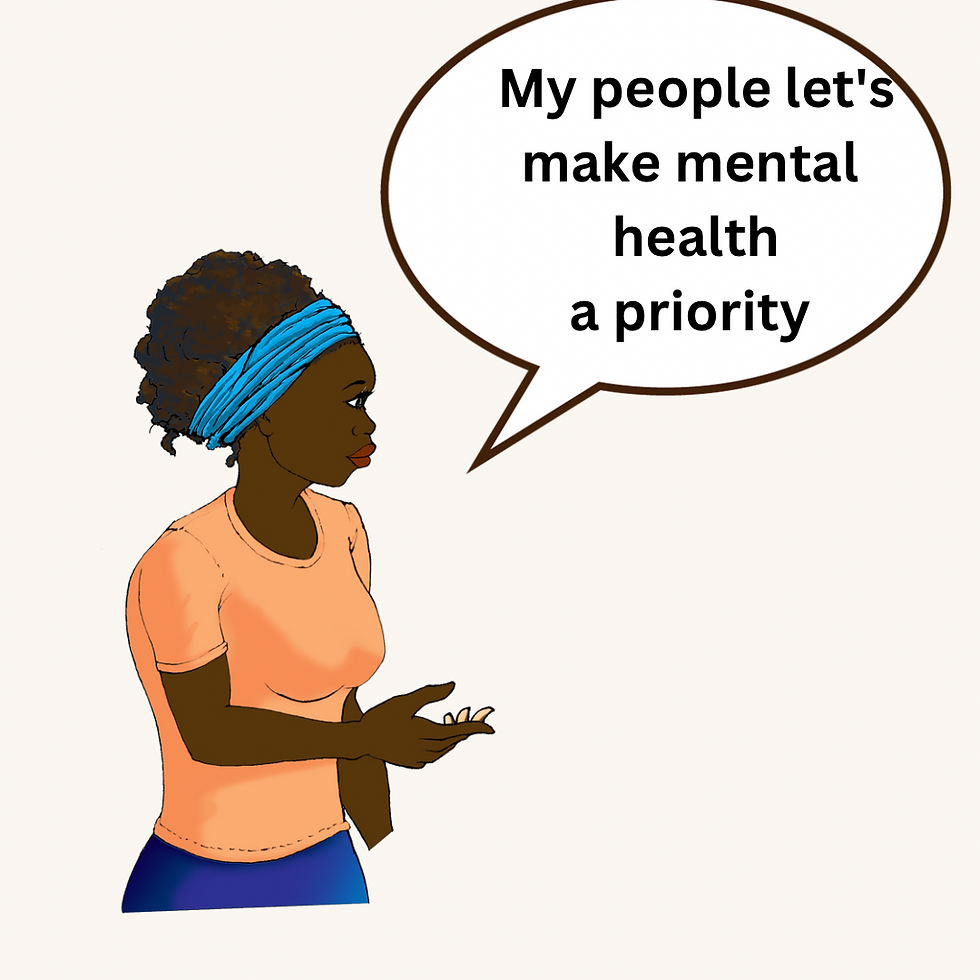Mental Health Chay -Chay-Polay
- demelzahoneyborne
- Nov 23, 2023
- 2 min read

The growth of any group depends on the mental and physical health of its members. A nation ridden with trauma will continuously operate destructively.
Trauma, according to SAMHSA (2014), results from a physically, emotionally harmful or life-threatening experience of event/s or set of circumstances which has lasting disruptive effects on an individual's everyday normal functioning. Everyone has a different response; some people may not be affected, while others may have short-term effects or, for others, last for years.
Some symptoms that are visibly seen in societies that have not made the trauma-informed approach a priority:
Being easily startled
Feeling tense, on guard, or on edge
Having difficulty concentrating
Having difficulty falling asleep or staying asleep
Feeling irritable and having angry or aggressive outbursts
Engaging in risky, reckless, or destructive behaviours
Trouble remembering key features of the traumatic event
Negative thoughts about oneself or the world
Exaggerated feelings of blame directed toward oneself or others
Ongoing negative emotions, such as fear, anger, guilt, or shame
Loss of interest in previous activities
Feelings of social isolation
Difficulty feeling positive emotions, such as happiness or satisfaction
Their population continue to live in the following:
Flight Mood: Getting away from an incident as quickly as possible, avoiding and shutting down
Fight Mood: Readily responding with
anger and aggression, in a continuous defensive mode
Freeze Mood: Mentally checked out, frozen,
loss for words and withdrawn from situations
Fawn Mood: This is a response involving people pleasing, putting others before yourself
Untreated trauma could result in the development of severe mental and physical health issues, leading to long-term destructive outcomes.
Additionally, there would be difficulties regulating emotions such as anger, anxiety, shame, sadness, numbness, or detaching emotions from thoughts, behaviours, and memories, leading individuals to make riskless and catastrophic decisions
According to numerous studies, behaviours such as sexual assault, domestic violence, public aggression, acts of terrorism and being easily controlled and manipulated that are regularly visible are the result of untreated trauma.
SAMHSA’s concept of trauma and guidance for a trauma-informed approach. (2014).




Comments